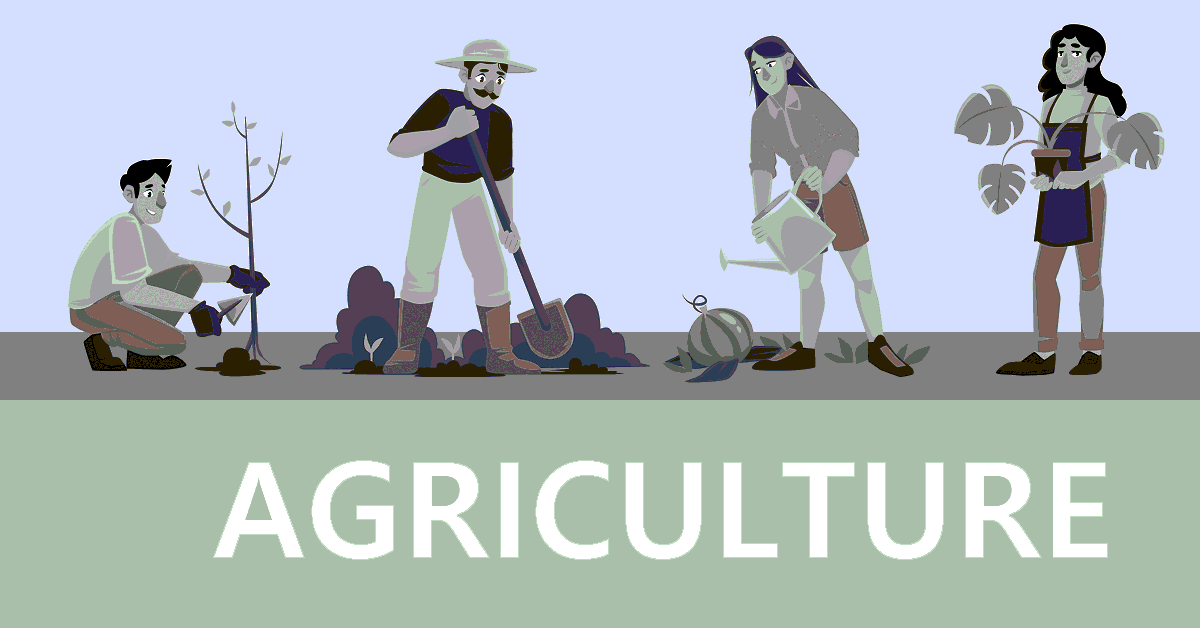
The Green Revolution in Bangladesh refers to a period of increased agricultural productivity and growth in the country, which has had a significant impact on agriculture and nutrition. This article will explore the history of the Green Revolution in Bangladesh, its impact on agriculture and nutrition, and the current challenges and potential solutions for promoting sustainable agriculture and improving food security in the country.
Brief History of the Green Revolution in Bangladesh:
The Green Revolution in Bangladesh began in the late 1960s and early 1970s, when new technology and practices were introduced to increase crop yields and productivity. This period of agricultural growth was driven by a combination of factors, including government support, investment in research and development, and improved infrastructure. Over the years, the Green Revolution has had a profound impact on the agricultural sector in Bangladesh, contributing to increased crop yields and food security for the country's population.
Impact of the Green Revolution on Agriculture in Bangladesh:
The Green Revolution has been instrumental in increasing crop yields and productivity in Bangladesh, particularly in the rice sector. Improved rice varieties, better irrigation systems, and better management practices have led to a significant increase in rice production, making Bangladesh one of the largest rice producers in the world. The Green Revolution has also had a positive impact on the country's other major crops, including wheat, maize, and vegetables, which have also seen increased yields and productivity.
However, the impact of the Green Revolution on agriculture in Bangladesh has been uneven, with some regions and farmers benefiting more than others. Small-scale farmers in rural areas, for example, have often struggled to access the technology and inputs needed to increase their yields and productivity. In addition, the intensive use of chemical fertilizers and pesticides associated with the Green Revolution has led to environmental degradation and other negative impacts on the land and water resources in some areas.
Effect of the Green Revolution on Food Security and Nutrition in Bangladesh:
The Green Revolution has had a positive impact on food security and nutrition in Bangladesh, with increased crop yields and productivity leading to improved food availability and access for the country's population. According to the World Food Programme, Bangladesh has made significant progress in reducing hunger and improving food security in recent years, but more work needs to be done to tackle malnutrition.
However, despite the positive impact of the Green Revolution on food security, there are still challenges to be addressed in terms of improving nutrition in Bangladesh. Malnutrition remains a major problem, particularly among children and women, and there is a need for more targeted efforts to improve the nutritional status of the country's population.
Current Challenges Facing the Agricultural Sector in Bangladesh:
Despite the progress made by the Green Revolution, there are still challenges facing the agricultural sector in Bangladesh that need to be addressed. Some of the key challenges include:
- Reducing poverty and increasing access to markets for small-scale farmers
- Improving access to technology and inputs for small-scale farmers in rural areas
- Reducing the negative impact of intensive agriculture on the environment
- Improving food safety and quality control to ensure that crops are safe for consumption
- Increasing investment in research and development to continue improving crop yields and productivity
Potential Solutions for Promoting Sustainable Agriculture and Improving Nutrition in Bangladesh:
There are a number of potential solutions for promoting sustainable agriculture and improving nutrition in Bangladesh, including:
- Supporting small-scale farmers through targeted programs and investment in rural development
- Encouraging sustainable agricultural practices, such as integrated pest management and agroforestry, to reduce the negative impact of intensive agriculture on the environment
- Improving access to technology and inputs for small-scale farmers in rural areas is also crucial for boosting agricultural productivity and reducing poverty. For example, providing small-scale farmers with access to high-quality seeds, fertilizer, and irrigation systems can help to increase crop yields and improve their livelihoods.
Additionally, the government and development organizations can play a vital role in promoting sustainable agriculture and improving food security by providing training and education programs, supporting the development of agricultural cooperatives, and investing in rural infrastructure. This can help to build the capacity of small-scale farmers, increase their access to markets, and improve their economic prospects.
However, there are also challenges that must be addressed in order to ensure the long-term success of the agricultural sector in Bangladesh. One of the main challenges is the lack of access to credit and finance for small-scale farmers, which makes it difficult for them to invest in new technologies and inputs. In order to overcome this challenge, the government and development organizations must work together to provide farmers with access to credit and other financial services.
Another challenge is the need to improve the quality of agricultural extension services in rural areas. Agricultural extension services play a crucial role in providing farmers with information and training on best practices for increasing crop yields and improving food security. However, in many rural areas of Bangladesh, these services are limited and farmers may not have access to the information they need to make informed decisions about their crops. Improving the quality of agricultural extension services, especially in remote and isolated areas, is essential for promoting sustainable agriculture and improving food security.
Conclusion
In conclusion, the Green Revolution has been instrumental in boosting agriculture and improving nutrition in Bangladesh, but there is still work to be done to ensure sustainable agricultural growth and food security in the country. Improving access to technology and inputs for small-scale farmers, increasing access to credit and financial services, and improving the quality of agricultural extension services are key priorities for promoting sustainable agriculture and improving food security in Bangladesh. With continued support from the government and development organizations, Bangladesh has the potential to continue to be a leader in agricultural development and improve food security and nutrition for its population.
Agricultural Science

